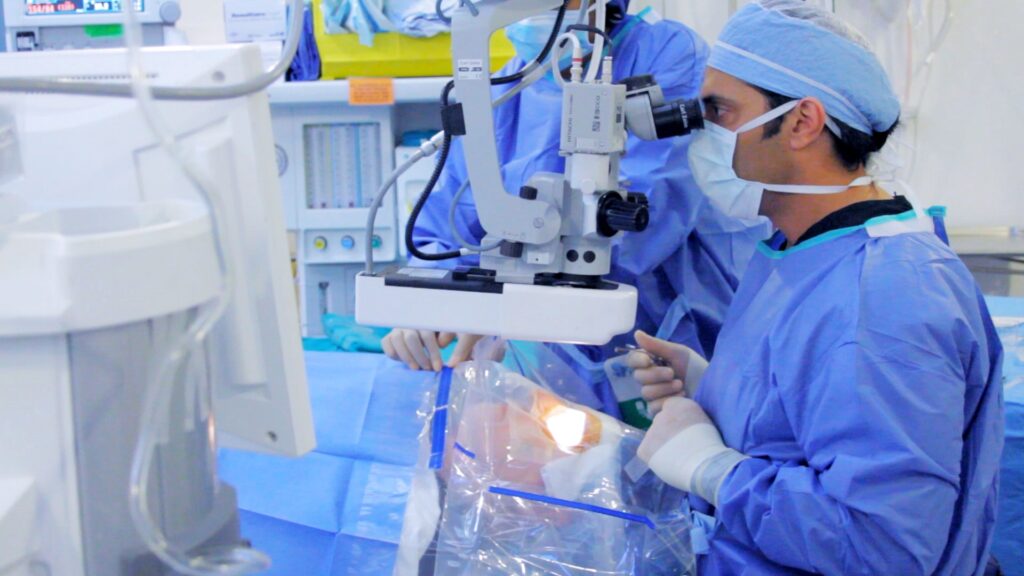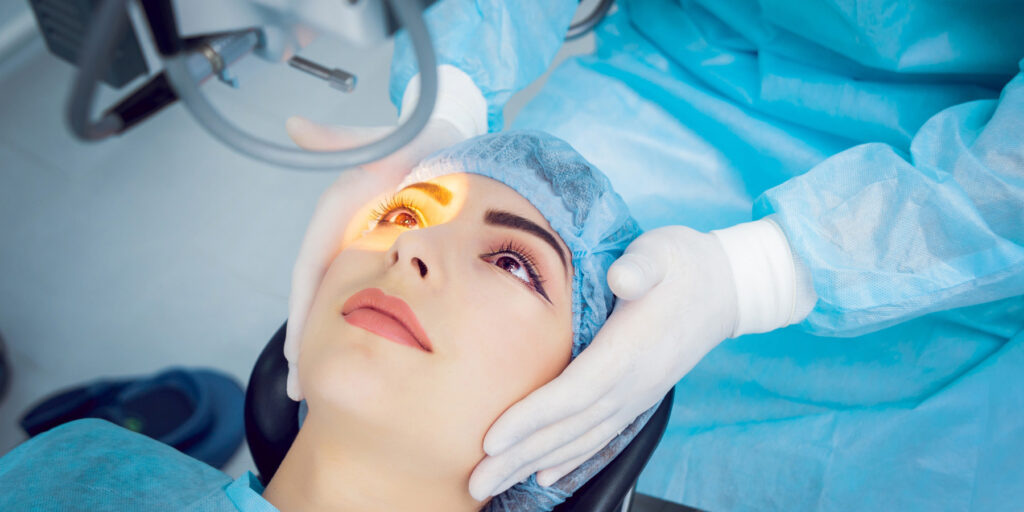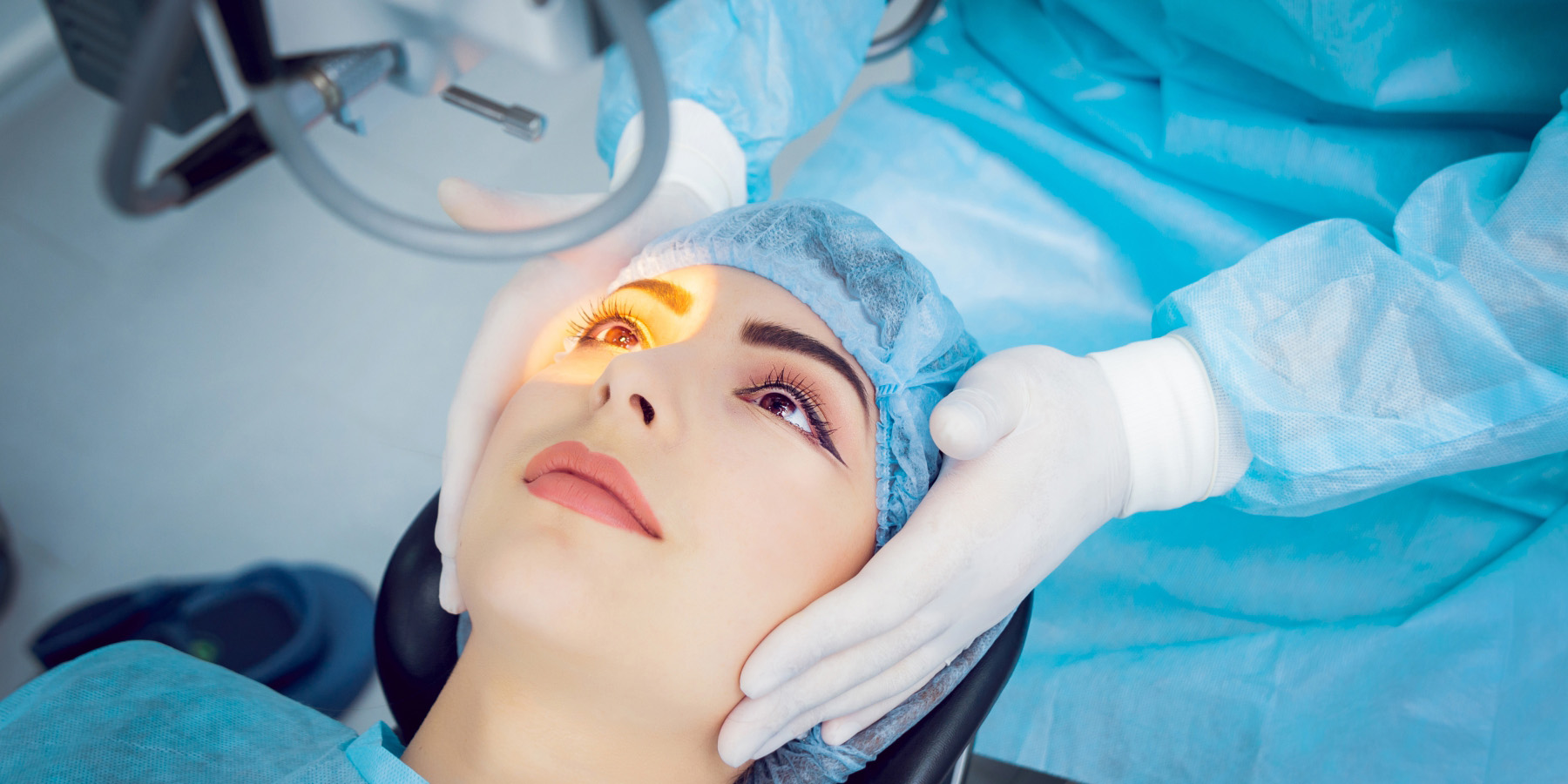Most individuals wait until a cataract impairs their vision to the point that it becomes difficult to read or drive. The retina (the tissue at the back of the eye) may alter with age or develop retinopathy from diabetes, both of which might need cataracts surgery.
How are cataracts removed?
Cataract surgery is carried out by an ophthalmologist, a medical professional who specializes in eye health.
The method used to eliminate cataracts
The clouded lens is removed during cataracts surgery and is replaced with an implanted prosthetic lens. The new lens is transparent, custom-made to meet your visual demands, and contoured to match your eye.
Removing a cataract takes roughly an hour. With local anesthetic, it is performed (medication to numb a specific area). To numb your eye, your doctor will either eye drops or a shot. While you’ll be awake, the process won’t be felt or seen to you.
What kind of cataracts surgery are there?
There are two methods for removing cataracts:

Phacoemulsification cataracts surgery
The most popular cataracts treatment is phacoemulsification. To access the clouded lens, your ophthalmologist makes a tiny incision in the eye. Your ophthalmologist separates the lens using a laser or high-frequency sound waves (ultrasound). After removing the lens shards from your eye, the doctor inserts a new plastic lens.
Extracapsular cataracts surgery
In the event that the phacoemulsification method is not a suitable fit for you, your doctor may advise this treatment. An advanced cataracts, for instance, can be too thick to readily break apart.
Your ophthalmologist creates a bigger aperture in the eye during extracapsular cataracts surgery. Your doctor removes the lens in one piece as opposed to first splitting it up before removing it. The produced lens is then inserted by the surgeon.
What should I anticipate following surgery?
It is usual to have one or two days of itching after surgery.
- A little discomfort.
- A wet eye.
- Light sensitivity
- Cloudy vision
You may need to use eye drops for a few weeks after surgery. The drops aid in healing, guard against infection, and manage ocular strain. Additionally, you should refrain from touching your eyes throughout those weeks.
- Squatting down.
- Moving hefty objects.
- Engaging in any activity that puts your sight at danger.

How long does recovery after cataracts surgery take?
Eight weeks should pass before your eye heals. However, you may resume your normal activities as soon as a day following the operation.
How safe is cataracts surgery?
One of the safest and most popular surgical procedures in the US is cataracts surgery. There is almost little likelihood of any difficulties. However, you should always go through any surgery’s risks with your doctor. After the operation, some patients do get an infection or lose their eyesight.
How painful is having a cataract removed?
During the procedure to remove your cataracts, you shouldn’t feel anything. You can have some little discomfort and agony thereafter. Your doctor may prescribe a painkiller for you to take for the first few of days.
Is cataracts prevention possible?
Age-related cataracts development is a common occurrence. To safeguard your eye health and decelerate the process, you may do the following:
- Give up smoking.
- Put on sunglasses and a wide-brimmed hat to block the light from your eyes.
- Attend routine eye exams. After the age of 60, get your eyes dilated once every two years. If you get treatment sooner, surgery could be simpler.
How quickly will my eyesight recover after surgery?
After having your cataracts removed, you can experience some blurriness for a few days. But after a few weeks, your eyesight should start to improve. In nine out of ten cases, cataracts surgery improves vision.
After cataracts surgery, you may still need to wear contacts or glasses. Be ready to purchase a new pair of contacts or glasses if your prescription changes. After cataracts surgery, you may need to have laser vision correction (LASIK®) again or use glasses or contacts.
Will I eventually need another cataracts surgery?
If you need cataracts surgery for both eyes, your doctor will likely plan for the procedures to be performed many months apart. By separating the operations, both eyes have a chance to recover. Additionally, it lessens the inconvenience to your life. The lens implants used to treat cataracts are long-lasting and often don’t need replacement.
You may sometimes have what’s known as a secondary cataracts. After surgery, for weeks, months, or even years, the prosthetic lens’ surface becomes cloudy. A short laser procedure termed a posterior capsulotomy corrects it. The process just needs five minutes. A laser is used by your ophthalmologist to create a hole in the lens so that light may enter once again. Your vision should become better in a day or two.

How can I improve my vision without cataracts surgery?
Your vision loss due to cataracts may be minimal in the beginning. You may attempt to control it by:
- Reading with a magnifying lens.
- Putting on polarized sunglasses to cut down on glare.
- Using brighter lights since more light makes it easier to see.
A message from us
It’s common to have some vision issues and cataracts development as you age. However, you are not obligated to put up with it. One of the safest and most efficient operations carried out in the United States is cataracts surgery. It happens quickly and is not too painful. 90% of those who get it regain their clear vision, and problems are quite uncommon.
Final thoughts
Cataracts surgery may be particularly useful when your cataracts start to impede the treatment of another eye issue you may be dealing with. A doctor will usually suggest this course of action if your cataracts start to make it difficult for you to carry out all of your everyday chores and to live your life as you’ve come to expect it.
You will often notice an instant improvement in your eyesight in the first few days after cataract surgery. On the other hand, it can take you four to six weeks (or perhaps more, depending on the situation) to feel almost 100% better.
Since every patient is a little bit different from the next, there is no “one size fits all” approach to guaranteeing a rapid and successful recovery following an operation like this. Having said that, there are a few crucial recommendations that you’re going to want to keep in mind constantly if you really want to make sure that your recovery and aftercare procedures run as smoothly as it is humanly possible.

